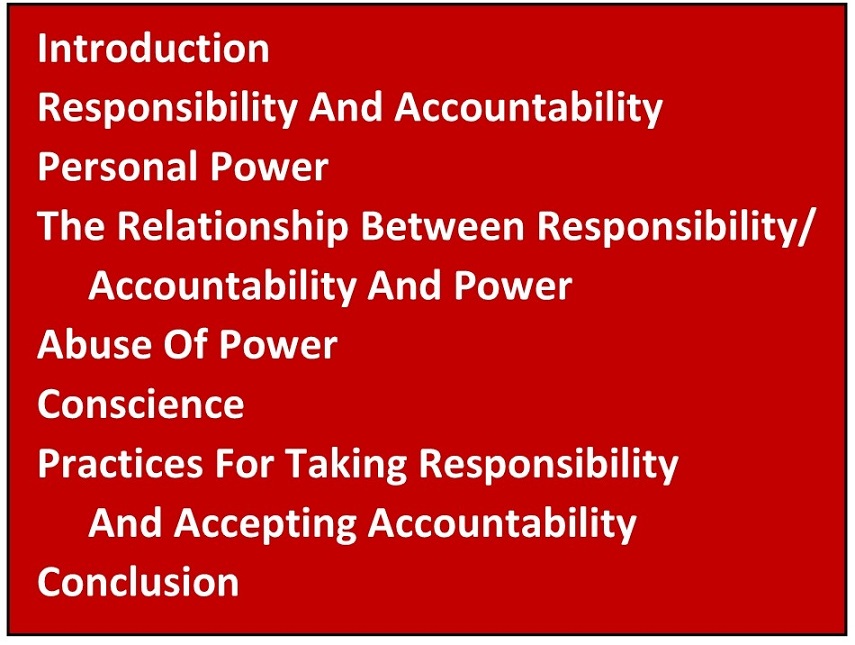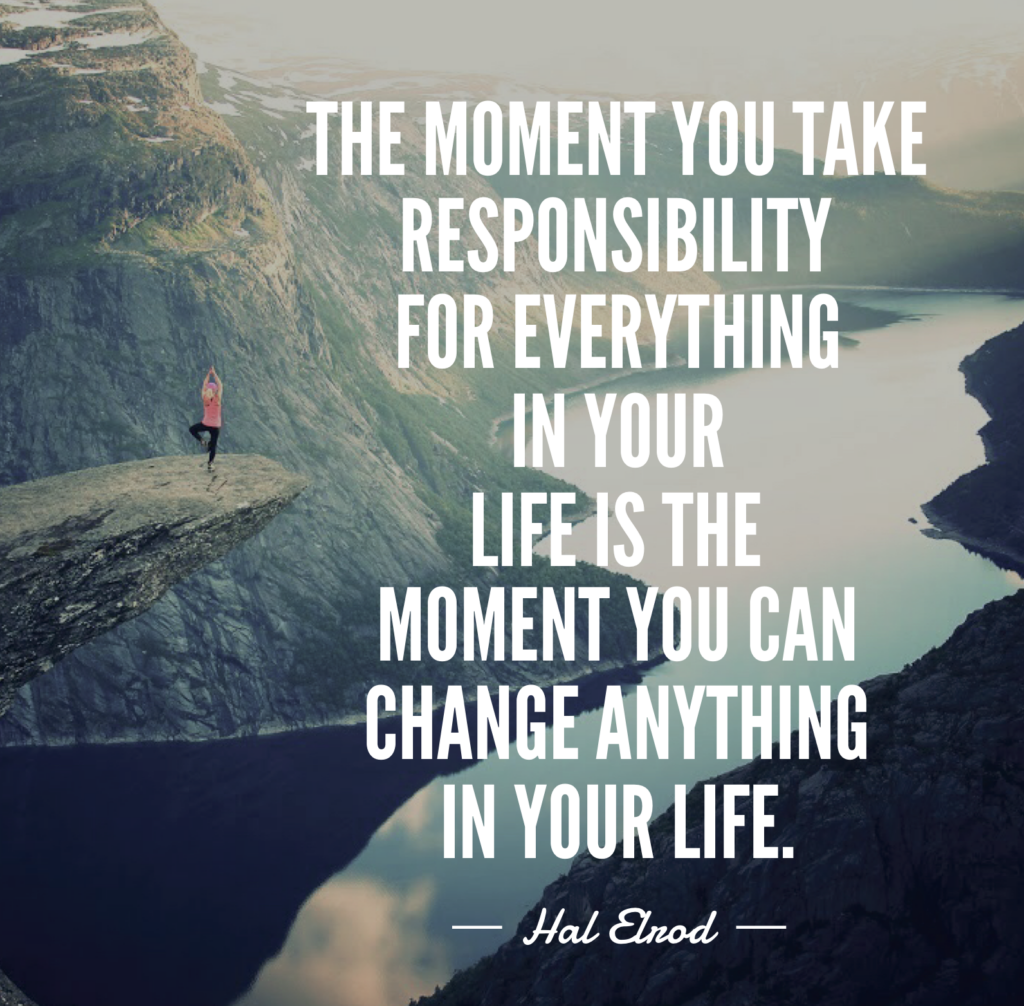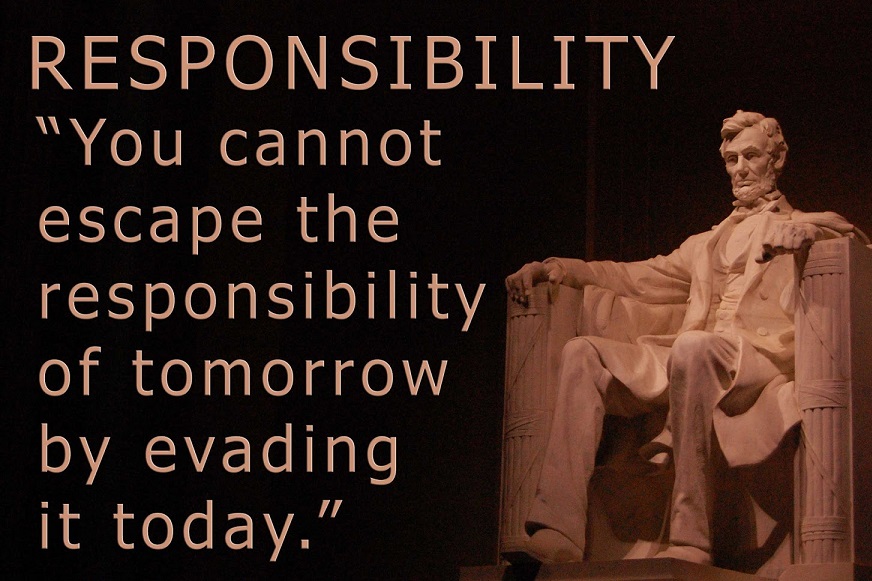Responsibility: The Secret of Personal Power
INTRODUCTION
Responsibility and accountability have become more important in recent years than ever before. We are clearly affected by the behavior of intimates, friends and co-workers. But beyond those circles we are increasingly affected by other people’s behavior. We ask them to be responsible and to accept accountability. As we explore these two aspects of our life we will see that it is to our benefit to be responsible and to hold ourselves accountable.
We explore personal power because feeling powerful gives us a sense of control over our lives.
Understanding personal power can increase that sense of control and our confidence that we can fulfill our needs and desires. In an era of increased visibility we see the constructive and destructive effects of the actions of those who use their power. It is therefore important that we claim our personal power and learn how to use it constructively.
Our exploration of responsibility and accountability will include a discussion of the conscience since it is the aspect of ourself that makes being responsible and accountable possible or impossible. Some ideas about the conscience may be seem controversial.
RESPONSIBILITY AND ACCOUNTABILITY
When we say responsible we usually mean accountable. Accountability is being asked “to answer for” our behavior and for the consequences of our behavior. Accountability means that there are consequences to the consequences of our actions. To account for is to clearly observe and describe what we did and possibly the consequences of that action. Accountability is linking cause and effect. “I did A which caused B.” Other people hold us accountable and we hold ourselves accountable. Being held accountable for our behavior may require an explanation or a justification for a behavior. Accountability is usually tied to approval or disapproval and to rewards or punishments. Other people hold us accountable but the most accountability comes from what we demand of ourself.
In addition to accountable there is another meaning to responsibility which divides it into response and ability. Our response is our reaction to an internal event within ourself or to an external event outside ourself. Our response may be spontaneous or deliberate, done with awareness or with little awareness. We always respond to an event that has impacted our nervous system, that has crossed the threshold of our internally focused or externally focused senses. We may not notice our response if we have little awareness of it. We seek to be effective and appropriate with our response.
Ability refers to a skill. The skill of being able to respond starts with the awareness of an event. Our awareness needs the clarity of accurate perception. Perception is followed by two questions: What do we want and did our behavior get us what we want? If the answer is yes we may repeat the behavior. If the answer is no we then ask what is it that we have to do instead.
In order to be responsible and to accept accountability we need to own our behavior. Ownership states that something belongs to me. It is mine. I did it. Ownership can be very challenging at times because when we own something responsibility and accountability automatically follow. Sometimes we deny ownership. “I did not do that, even though I know that I did.”
Point Of Empowerment: Without the willingness to accept ownership there can be no responsibility or accountability.
Another aspect of responsibility is feedback. The world gives us feedback about our behavior. If we have impact there is a positive approving response or a negative disapproving response to our actions. A neutral response occurs when our behavior has little impact and is not important. Feedback is crucial information about how our life is going and therefore what we should do. Without ownership we cannot take in and use the feedback we receive.
PERSONAL POWER
Power is the ability to move something from one place to another place. With power we move many different things—a big rock, my body, a thought, another person, or a nation. We have “earth moving machines” that extend our power. Our most important power is to “move ourselves.” This includes the power to change. An example of moving ourselves is the power of concentrating for long periods of time by focusing our attention. I “move” my attention to one thing instead of many things.
Personal power means that a power is ours. Where we are powerful varies from one person to another. For example, I may be able to use my words to persuade, to move, other people to take certain actions. There is power in my words. Other people use their power of persuasion by setting an example that people can follow. Everyone has personal power but how we use it varies greatly from one person to another.
Point Of Empowerment: Harness your power effectively to create what you want in your life.
Be aware of your ability to have impact on other people and to influence them.
THE RELATIONSHIP BETWEEN RESPONSIBILITY/ACCOUNTABILITY AND POWER
Responsibility and accountability involve ownership. Ownership allows for control. What I own I can control. What I control comes under my will. What is under my will I can move and power is the ability to move something. What I take responsibility for I have power over. In owning my behavior—my thinking, feeling, and doing, I own my power.
Responsibility and accountability involve clearly seeing the consequences of our behavior. In seeing consequences and using them as feedback we can become more effective in what we do. This effectiveness increases our power to accomplish what we want.
ABUSE OF POWER
Abusing power is essentially manipulating others to get them to do what you want them to do. The methods for abusing power are threats of some sort of punishment followed by the actual punishment if the threat is not sufficient. Threats and punishments are physical, emotional, and mental harm—threatening, hitting, pushing, deprivation, withholding, fear, intimidation, verbal attacks, and attacks to a person’s wellbeing, self-esteem, and self-worth. The list is very long.
When a person abuses his power his life has less happiness, joy, satisfaction, fulfillment, love, and all aspects of the goodness of life. There is the belief that more and more power is necessary and that power will make for a good life. Experience shows that shared power and power used wisely makes for a good life.
The abuse of a child is the origin of abusing power. A person who has been the receiver of abusive power often goes on to abuse others. The range of abuse experiences goes from hardly any to extreme and every child experiences some abuse.
Every child, every person, needs to assert his/her will to use a strategy to get what he/she wants and to fulfill needs. If reasonable constructive strategies are blocked by abusive adults, a child resorts to manipulative strategies which get carried into adulthood. For example, children make verbal statements about what they want. If this strategy fails at satisfying desires and needs, manipulation through aggression or passive dependence may become the strategy of choice, a strategy that gets carried into adulthood.
CONSCIENCE
Let’s see how a dysfunctional conscience interferes with taking responsibility and accepting accountability. Our conscience is an aspect of our self. It tells us what is right and wrong. (Of course there are times when right and wrong are very complicated.) A healthy conscience does not “tell us what to do” and threaten us with punishment if we “don’t do the right thing.” It is a consultant. Other aspects, “parts, ” of the self have the job of deciding and choosing what we will do and dealing with the consequences of our actions. For example, the “adult” part of the developmental self along with the ego choose what we will do after listening to the conscience in situations where right and wrong are involved. This process happens so quickly and automatically that we are hardly aware of it unless we have a conflict about what is right and what to do.
One consequence of doing the right or the wrong thing is an increase or decrease of self-esteem. Our self-esteem goes up when we do the right thing, down when we do the wrong thing. Of course another consequence of doing the wrong thing is guilt. The conscience is formed by what parents and authority figures said to a child as he/she is growing up. A child’s temperament also plays a role in the formation of conscience.
A dysfunctional conscience is harsh, sometimes brutally harsh. It has rigid and extreme views of what is right and wrong and rigid and extreme expectations. It is punishing, sometimes brutally punishing. It generates excessive guilt, shame, and self-hate. It kills self-esteem.
A harsh conscience can make accepting responsibility and accountability difficult or sometimes impossible. A child may have been blamed for things he/she did not cause. They were told that they were responsible for things they were not responsible for and then punished. The child and later the adult has excessive guilt and fear, hurt and pain associated with responsibility and accountability. A child can feel shame when destructively held responsible. A person will deny responsibility and reject accountability to avoid feeling guilt, shame, fear, hurt, and pain. Everyone “cringes” a little bit when told that he/she is responsible and will be held accountable. But most of us can handle this discomfort. Many of us have some degree of difficulty in dealing with the feelings that come up around responsibility and accountability. For some people the amount of pain and painful feelings triggered makes approaching responsibility and accountability impossible.
Point Of Empowerment: A healthy conscience makes taking responsibility and practicing accountability a positive experience. We are doing the right thing and feel good about ourself.
Practice: Notice when your conscience (the voice of your conscience) dumps too much guilt, shame, and fear on you. Tell your conscience to “lighten up.”
PRACTICES FOR TAKING RESPONSIBILITY AND ACCEPTING ACCOUNTABILITY
- Know that being responsible and accountable increase your personal power.
- Become aware of your thoughts, feeling, and actions and how they flow.
- Take ownership of them. “They are mine. I created them.”
- Notice the consequences of your actions.
- Evaluate your behavior for “desirability.” Is it getting you what you want? Are you loving or hurting others?
- Repeat the behaviors you want. Change the ones you don’t want.
CONCLUSION
Responsibility, accountability, power, and conscience are what we could call some of the themes of life. Themes are aspects of life that all human beings explore and experiment with during a lifetime. There are profound lessons to be learned as we explore themes. In the next Letter we will consider other aspects of responsibility and conscience and see how these themes are related to self-esteem. We will then consider examples of living these themes. To be continued.
